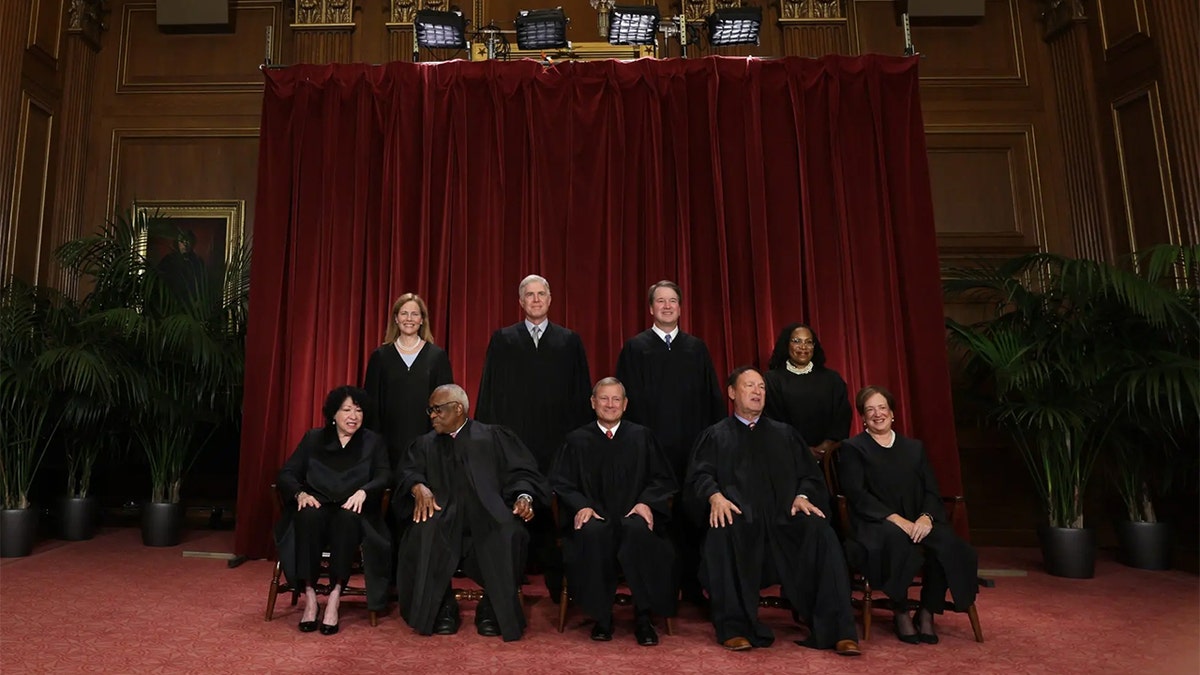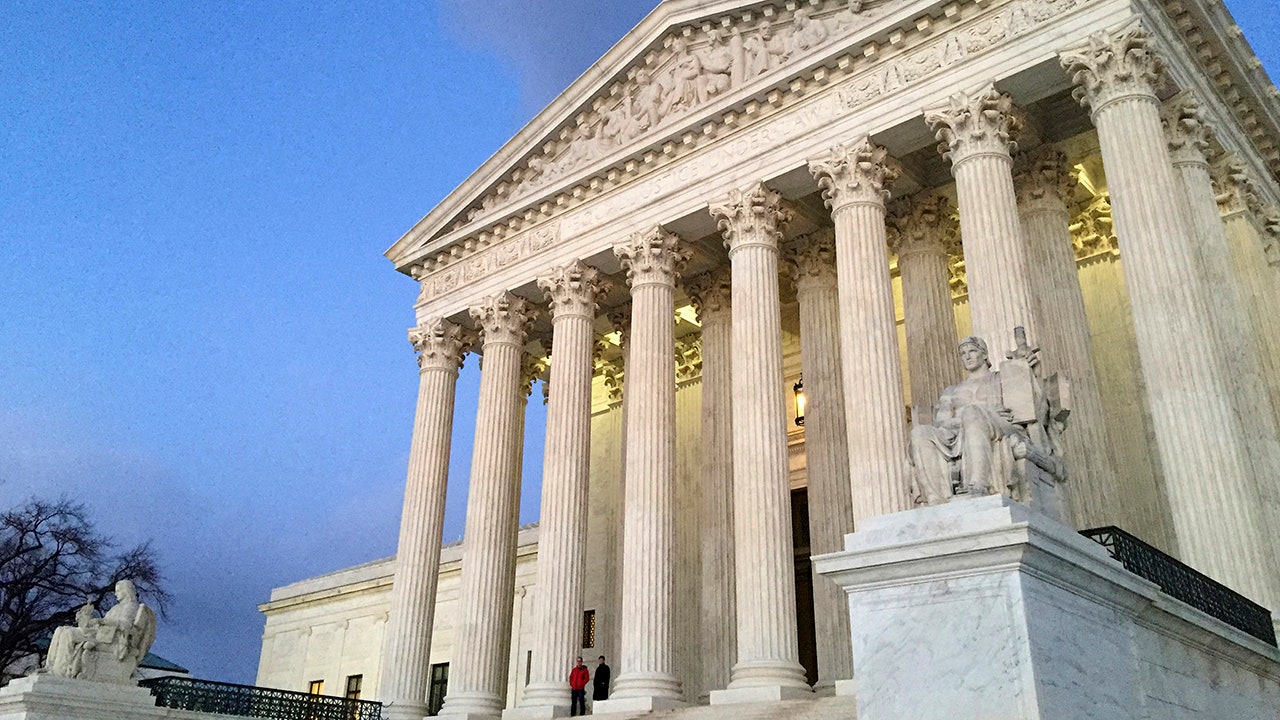NEWYou can now listen to Fox News articles!
The Supreme Court ruled unanimously in favor of an Ohio woman who claimed she was discriminated against for job promotions in favor of gay candidates on Thursday.
The ruling, Ames v. Ohio Department of Youth Services, finds that members of majority groups in protected classes do not need to meet a higher standard of evidence in order to establish discrimination. Justice Ketanji Brown Jackson wrote the opinion of the court in the 9-0 decision.
“The Sixth Circuit has implemented a rule that requires certain Title VII plaintiffs—those who are members of majority groups—to satisfy a heightened evidentiary standard,” Jackson wrote. “We conclude that Title VII does not impose such a heightened standard on majority group plaintiffs. Therefore, the judgment below is vacated.”
The woman in the case, Marlean Ames, is a heterosexual woman who had worked for the Ohio Department of Youth Services since 2004. She argued she was discriminated against on the basis of her sexual orientation after she was passed over for a promotion in 2019 in favor of a lesbian woman, and was then later replaced in her own role by a gay man.
SCOTUS TO HEAR STRAIGHT WOMAN’S DISCRIMINATION CASE THAT COULD RESHAPE EMPLOYMENT LAW
The Supreme Court voted 9-0 on Thursday in favor of an Ohio woman who claimed she was discriminated against for being heterosexual. (AP/Jon Elswick)
“Ames was qualified, had been denied a promotion in favor of a gay candidate, and was later demoted in favor of another gay candidate—evidence that would ordinarily satisfy her prima facie burden—before it specifically faulted Ames for failing to make the ‘requisite showing of “background circumstances.”‘”
Title VII prohibits employers from discriminating against employees on the basis of race, color, religion, sex, or national origin. Thursday’s ruling strikes down the Sixth Circuit Court’s “background circumstances” rule, which had required majority groups in protected classes to show special evidence of discrimination.

Associate Justice Ketanji Brown Jackson wrote the opinion of the court for the case of Marlean Ames v. Ohio Department of Youth Services. (AP Photo/J. Scott Applewhite, File )
Thursday’s order does not fully resolve the case in Ames’ favor, however. The court notes that Ohio had “alternative arguments” for why the Ohio government’s treatment of Ames was justified. The justices said they are not weighing in on those alternative arguments, merely striking down the “background circumstances” rule.
“We granted review to consider the validity of the “background circumstances” rule, and we reject that rule for the reasons set forth above. We leave it to the courts below to address any of Ohio’s remaining arguments on remand,” Jackson wrote.

United States Supreme Court (front row, left to right) Associate Justice Sonia Sotomayor, Associate Justice Clarence Thomas, Chief Justice of the United States John Roberts, Associate Justice Samuel Alito, and Associate Justice Elena Kagan, (back row, left to right) Associate Justice Amy Coney Barrett, Associate Justice Neil Gorsuch, Associate Justice Brett Kavanaugh and Associate Justice Ketanji Brown Jackson. (Alex Wong/Getty Images)
Ames’ case was supported by the Justice Department, the American First Legal Foundation and the libertarian Pacific Legal Foundation. The NAACP Legal Defense and Education Fund was among the major groups backing Ohio in the case.
READ THE FULL COURT OPINION BELOW (APP USERS CLICK HERE)












Leave a Reply